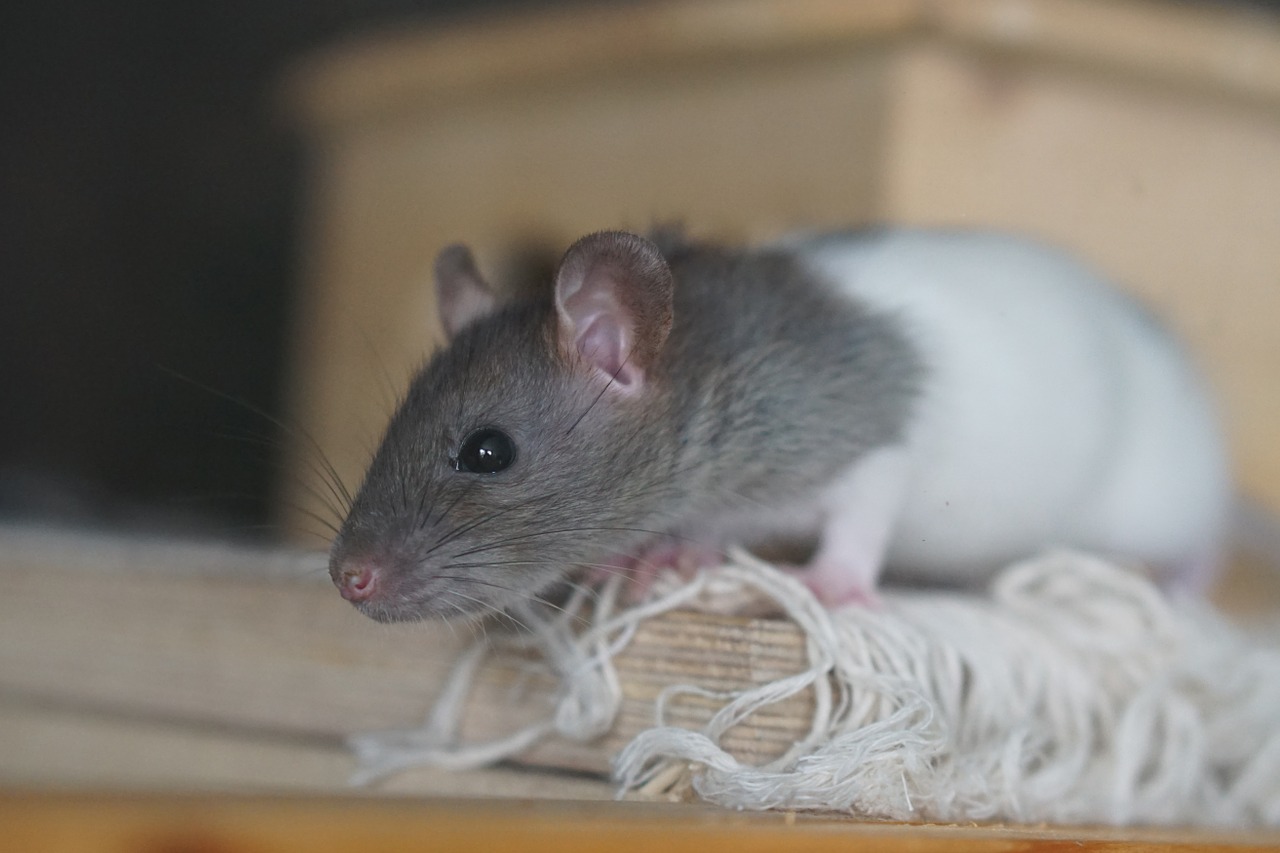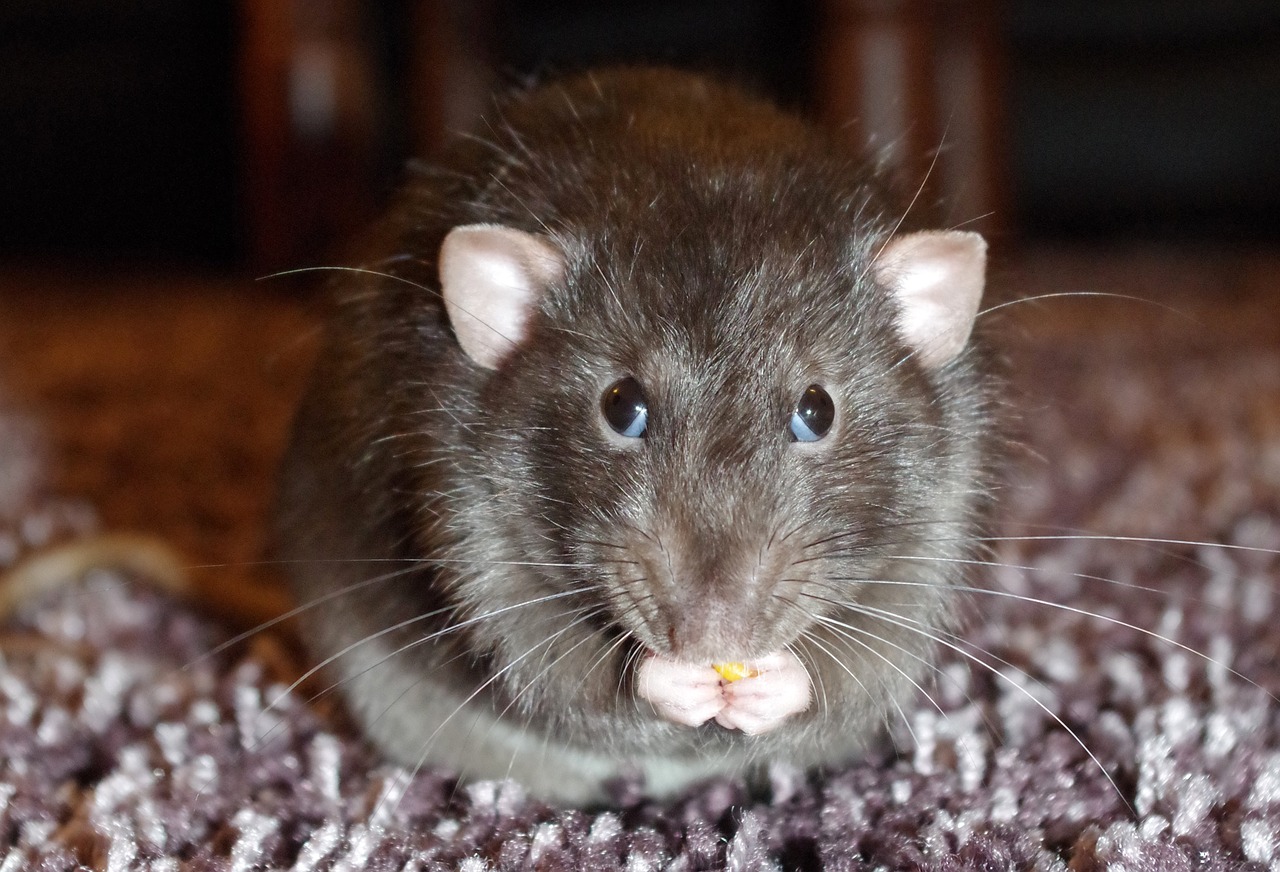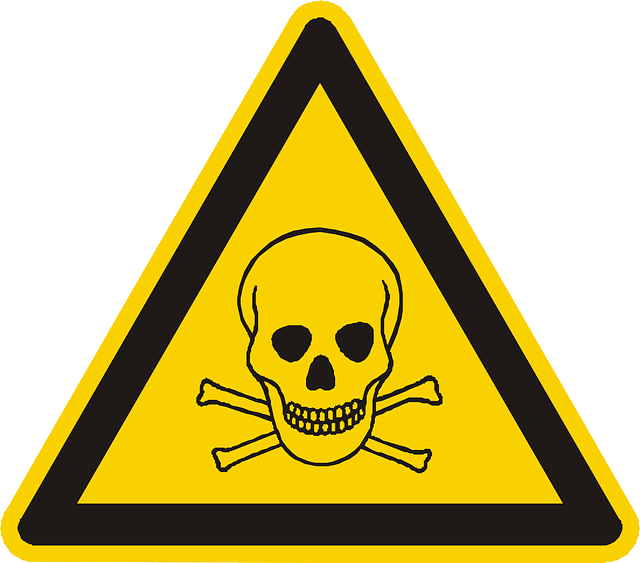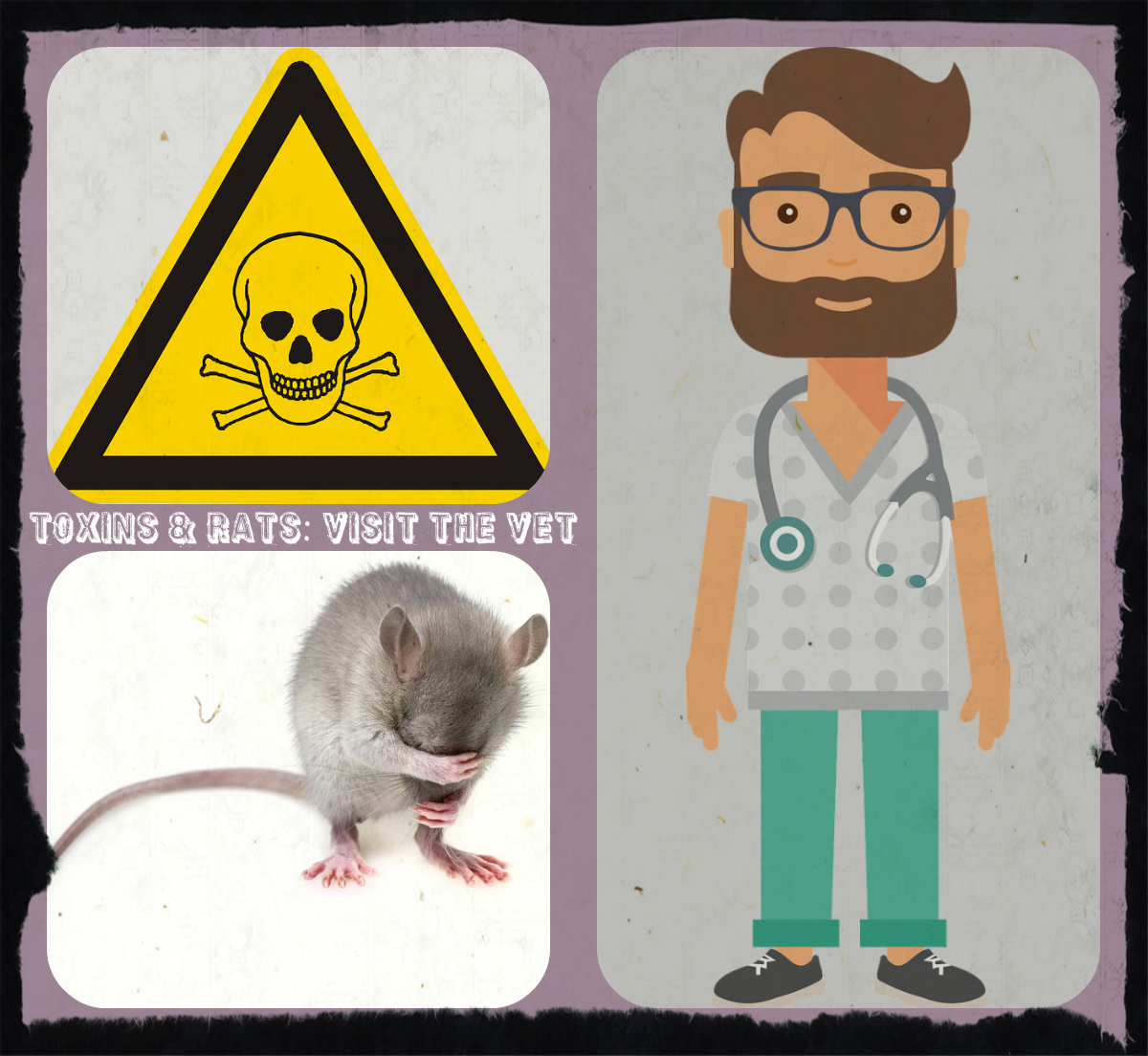Can Rats Eat Chocolate?

Let’s be honest: who doesn’t love a chocolate treat?
Whether it be some form of candy bars, cookies, brownies, or cakes… it’s likely that you enjoy one of them.
I can promise that your rats do, too! If you decide to offer your rats one of the most delicious guilty pleasures on the face of the planet, give yourself a minute to read this post before you drop a treat to your rats!

Can Rats Eat Chocolate?
For years, rat owners have been giving their rats chocolate as a treat. Or, their rats have been stealing their chocolate. Allow your rat one taste of chocolate, and you’re guaranteed that they will try to steal every morsel of chocolate you get your hands on for the rest of their lives. But is this practice okay? Is chocolate going to hurt a rat?

Is Chocolate Healthy for a Rat?
First, I would like to let you know that chocolate is not “healthy”, just like it isn’t for us. While we can get many benefits from dark chocolate (the darker the better), such as mood enhancement or antioxidants, there isn’t a solid healthy trait to it. Dark chocolate is definitely a far better option than milk chocolate, so keep this in mind. Your rat simply won’t gain anything other than a little weight from the chocolate….
Now, this could be beneficial with sick rats, as a rat with no appetite will still nibble on chocolate more often than not. This will supply the rat with quick energy, helping to alleviate appetite issues and issues with weight gain.

Is Chocolate Dangerous for a Rat to Eat?
Some species, such as dogs, are not able to have chocolate. While a small amount likely won’t hurt them, chocolate is toxic to dogs- the darker the chocolate, the more toxic it is. Rats are not susceptible to this, rather, chocolate is just unhealthy in large amounts. Rats should not ingest large amounts of sugar, which is what most forms of chocolate contain too much of.
If a rat eats chocolate too frequently, he or she will ingest too much sugar which may lead to excessive weight gain. The rat will also pick through his or her food more selectively, perhaps in search of the most sugary bits. While this is to be expected to an extent, too much chocolate can hinder the rat from eating enough of the food that it needs to be ingesting; reducing his or her intake of valuable nutrients. Thus, chocolate should not become a frequent treat, no matter how much the rat begs and pleads (or plots and thieves).

How Much Chocolate Is Too Much to Give a Rat?
All in all, rats do not need chocolate as a part of their diets. Therefore, it should be treated as a treat. Offer healthier treats in most instances, with chocolate being on rarer occasion. If you buy a chocolate bar once or twice a week for yourself, it’s perfectly fine to snap off a little piece for your rats.
- Don’t feed chocolate more than 3x per week to your rats.
- For dark chocolate, aim for a piece the size of your thumbnail.
- Try to avoid feeding lower quality chocolate- go for the dark chocolate with simple, natural ingredients. The darker the chocolate, the less sugar it will have.
- If your rat is overweight, cut back on all sugary treats; a tiny nibble of 80%+ cacao is fine once per week.
- Never free feed chocolate. This is a very, very bad idea.

My Rat Escaped, Ate Chocolate, and Is Acting Weird… What Do I Do?
If you are just now learning that chocolate is okay for a rat to eat, especially after believing it made your rat sick, you likely have bigger problems on your hands.
When rats escape, they love to find new foods to try. Rats can be affected by new foods just like we can; many times it’s not as extreme, though. I would expect a rat to feel a little under the weather after binging on sugary treats, but your rat should not be showing signs of neural distress or poisoning. If it is, you need to know that the chocolate is not the cause; however, you need to find the cause as quickly as possible to keep your rat safe.
If your rat escaped then begins showing some of the following symptoms, you need to do a quick check of your home and get to the vet immediately:
- Disorientation and confusion
- Excessive sleepiness
- Inability to walk, jump, run, bathe, or crawl correctly (poor motor function)
- Refuses to eat or drink while showing signs of distress
- Labored breathing
- Excessive discharge from the nose or eyes (such as Porphyrin)
- Bloody discharge (from any orifice, be sure that Porphyrin isn’t the cause)
- Diarrhea
- Lethargy/weakness
When inspecting your home after a rat escapes and comes down with strange symptoms, you want to take into account anything that may have occurred in the last 48 hours. Try looking for these common scenarios in your home or similar recent events:
- Have you cleaned with poisonous, toxic cleaners lately? Did you leave any open, or use something that didn’t involve rinsing the surface after (such as wood polish?) Is it possible the rat climbed across it and ingested toxins while bathing, nested with a cleaning rag, or chewed a cleaner container open?
- Does the rat have any residue on the paws, coat, face, or feet? Do they smell like anything other than a rat, that you can identify?
- Have you enjoyed an alcoholic drink or hosted a party lately? Is it possible your rat found bottles, cans, glasses, or spills and helped him/herself to a sip?
- Do you take medications that may have been left open, or torn into by the rat? Can you find evidence of any chewed wrappers?
- Has a pest control company sprayed or baited your home lately? Do you, or your neighbors, use poisons to control any type of pest? (this might include wild rodents, ants, spiders, roaches, birds, and more)
- Is your rat experiencing any respiratory distress, potentially pointing to a coincidental respiratory infection that requires treatment?
- If the rat snooped through a purse, check for other missing or damage items; makeup, chap stick, hand sanitizer, medications, and other common purse items could be the true culprit.
Dealing with a sick rat can be very scary, but time is of the essence. Again, chocolate will not cause severe distress, neurological symptoms, or other symptoms of potentially lethal poisoning. It might seem likely after finding a Snickers bar that’s missing roughly a human’s bite’s worth on your table, but this can result in an incorrect diagnosis; especially by a vet who does not practice small animal medicine reliably. Properly trained vets who specialize in rat care should know that rats do not have the same reaction to chocolate that dogs do.
